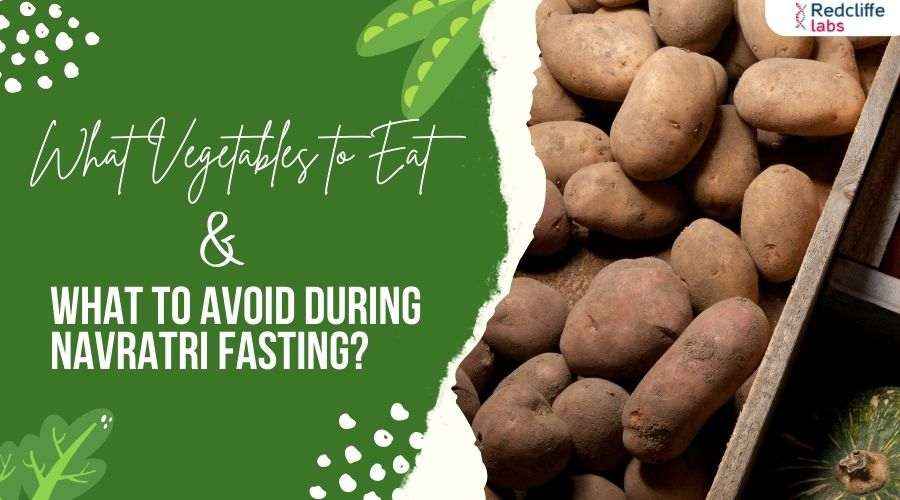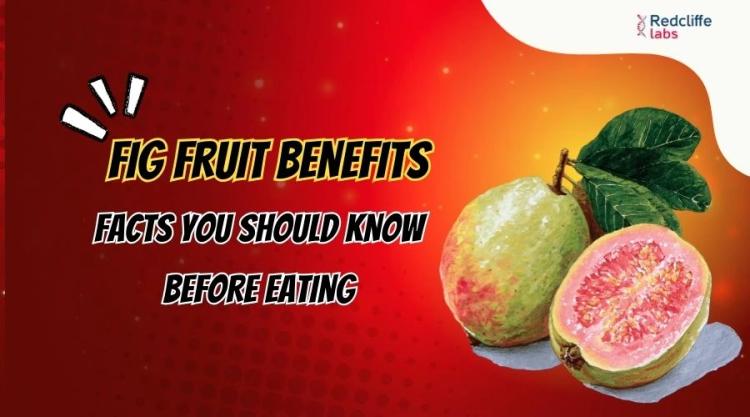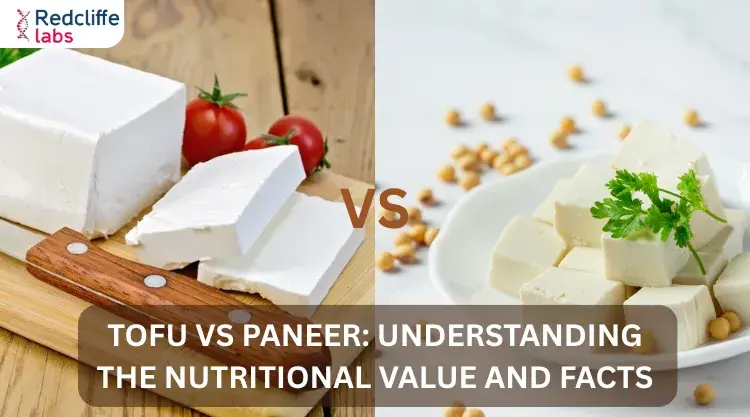What Vegetables to Eat and What to Avoid During Navratri Fasting?

Medically Reviewed By
Dr. Geetanjali Gupta
Written By Kirti Saxena
on Oct 8, 2024
Last Edit Made By Kirti Saxena
on Jul 19, 2025

Sharad Navratri is here, and for those observing the auspicious nine-day festival, it's a time of devotion, reflection, and fasting. During Navratri, devotees worship Goddess Durga and consume only Sattvic (pure) foods as part of their fast.
However, during fasting, people often need clarification on which vegetables are allowed and which should be avoided.
So, if you're wondering what vegetables you can enjoy during these nine days and which ones you should avoid, you're not alone! From potatoes to bottle gourds, we'll clarify the fasting-friendly options and the vegetables to skip. Read on to resolve all your queries about which vegetables to include and exclude in your Navratri meal plan so you can observe your fast with ease and confidence!
Importance and Benefits of Navratri Fasting
The Navratri nine-day festival is dedicated to Goddess Durga. Millions of people observe fast to seek blessings and maintain a disciplined lifestyle during these days. However, Navratri fasting has profound spiritual significance and several health benefits. Here’s why observing a fast during Navratri can be beneficial:
- Weight loss- Fasting reduces calorie intake and helps manage weight easily. Since fasting food is usually oil-free and heavy grains are avoided, it prevents bloating and promotes a leaner body.
- Increased autophagy- It is like a housekeeping mechanism inside the body. During this process, damaged cells and cellular debris are recycled and reused as energy or building blocks for new cells and cellular components.
- Boosts Immunity and lifespan- Sattvic foods are rich in antioxidants, vitamins, and minerals and can boost immunity. Fresh fruits, vegetables, and nuts provide essential nutrients, protect your body from infections, and maintain overall health.
- Body Detoxification- During Navratri fasting, people consume sattvic foods, which allow the body to detoxify naturally.
- Boosts Metabolism- Foods like Kuttu ka Atta, amaranth, and dairy products help boost metabolism, improve digestive function, and absorb nutrients more efficiently.
List of vegetables You can Consume During Navratri Fasting
During Navratri, the focus is to consume only Sattvic goods, which are pure, light, and easy to digest. Here is the list of Vegetables allowed in the Navratri fast-
- Potato
- Sweet potato
- Cucumber
- Carrots
- Arbi (Taro Root)
- Tomatoes (it is technically considered a fruit)
- Ginger
- Lemon
- Yam or Suran
- Radish
- Pumpkin
- Colocasia
- Raw banana
- Raw papaya
- Bottle gourd
- Spinach (Palak)
List of Vegetables You Should Avoid During Navratri Fasting
Tamasic vegetables like onion and garlic are not allowed during Navratri. There are some other vegetables which are not allowed during Navratri fasting-
- Onion
- Garlic
- Leeks
- Shallots
- Brinjal (Eggplant)
- Mushrooms
- Cauliflower
- Broccoli
- Green Peas
- Corn
- Bell Peppers
- Okra (Bhindi)
List of Fruits You Can Consume during Navratri Fasting
If you are fasting, consume colorful fruits daily to maintain hydration and nutritional requirements. Here are some fruits you can enjoy during Navratri:
- Bananas
- Apples
- Papaya
- Pomegranate
- Oranges
- Melons (Watermelon, Muskmelon, etc.)
- Pears
- Grapes
- Pineapple
- Berries (Strawberries, Blueberries, etc.)
- Coconut
- Kiwi
Popular Grains Allowed during Navratri Fasting
There are a lot of vrat-friendly food options that are allowed during Navratri fasting. These foods not only keep you fuller but also fulfill your daily nutritional needs. While Probiotics like curd and buttermilk are good for your gut, Paneer, milk, and kuttu ka atta can easily manage your protein requirements. Consuming fruits and vegetables will satisfy your antioxidants and vitamins requirements. Let's understand the importance and benefits of these Sattvic Foods for Navratri fasting in detail-
- Samak ke Chawal- It is a better option than normal rice. You can prepare pulao or kheer, adding variety to the Navratri meals.
- Kuttu Ka Atta is a gluten-free and highly nutritious fasting option. During the fast, you can prepare rotis, puris, or pakoras.
- Singhare ka Atta is another healthier option for fasting. You can make roti or puri.
- Sabudana- Sabudana Khichdi of Sabudana vada are popular recipes during Navratri fasting. It is a good source of carbohydrates and energy.
- Dry Fruits—Nuts like peanuts, Almonds, Cashews, makhana, and Walnuts are allowed during Navratri fasts. You can eat them raw or roasted or add them to your smoothies or kheer.
- Probiotics like Butter Milk and curd- Hydration is crucial during fasting. Consume buttermilk and curd to keep yourself hydrated.
- Fruits—Consume more fruits, such as Apples, oranges, Bananas, Grapes, Muskmelon, and watermelon, to maintain your vitamins, minerals, and antioxidant levels.
Foods to Avoid During Navratri Fasting
Some foods are not allowed during Navratri Fasting. These are-
- Grains (Wheat, Rice, etc.)- Grains like wheat, rice, barley, and other flour made from these grains are not allowed. Swap them with kuttu ka atta, singhara ka atta, samak chawal, etc. These flours and grains are not allowed in Navratri.
1. Rice and rice flour
2. Wheat flour or atta
3. Maida
4. Sooji
5. Besan
- Common Salt—Regular salt is not allowed during Navratri fasting; use sendha namak (rock salt) instead.
- Onions and Garlic- Onions and garlic are considered tamasic foods. Do not eat these vegetables during fasting.
- Legumes and Lentils- All legumes and lentils, such as beans, chickpeas, and lentil varieties, are avoided.
- Meat, Fish, and Eggs—Non-vegetarian foods, such as all meats, fish, and eggs, are strictly prohibited during Navratri.
- Alcohol and Tobacco- Consumption of alcohol and tobacco is not allowed during the Navratri fast.
- Processed and Packaged Foods- Avoid consuming packaged foods like chips, biscuits, and other ready-made snacks during fasting.
- Refined Oils—Refined oils are not allowed during Navratri. Cook the food in pure ghee or unrefined oils like peanut oil to make it healthier and more natural.
- Spices like Haldi (Turmeric), Hing (Asafoetida), and Mustard Seeds must be avoided. Cumin, green chili, and black pepper are typically used instead.
Why are Potatoes Popular in Navratri Fasting?
Potatoes are one of the most common and popular foods used during Navratri fasting. They are versatile and filling and can be easily prepared in various ways to suit the fasting diet. Since potatoes are not classified as a grain, they can be eaten during fasting. Potatoes are-
- Potatoes provide a good amount of carbohydrates and can easily maintain your energy levels during fasting.
- Another good thing about potatoes is that they can be cooked in various ways, like boiled, roasted, mashed, or made into delicious dishes like aloo chaat, aloo ki sabzi, or jeera aloo. They're also great when combined with Sendha namak and mild spices like cumin and black pepper as part of your sattvic fasting diet.
- Potatoes are easy to digest, making them the best food choice during fasting.
What will not break the Navratri fast?
For most people, what they consume during fasting must have zero or minimal calories.
- Water
Water contains zero calories, meaning a person can drink as much during fasting.
- Black Coffee and Tea
Black coffee contains few calories per cup.
Studies show that caffeine can reduce the appetite and make it easier for someone to fast.
Many teas, like green tea, can increase the feeling of fullness and decrease appetite.
Must Try Popular Food Recipes During Navratri Fasting
Navratri fasting doesn’t have to be boring! Here are some delicious and satvik dishes you can prepare at home and make for satisfying meals or snacks during the festival:
- Cucumber Raita- This cooling dish helps digestion and is an excellent combination with any fasting meal.
How to prepare?
Grate the cucumber and mix it well with curd or yogurt. Add rock salt and cumin powder to taste, then stir well. If desired, garnish with chopped coriander.
- Coconut Ladoo- These sweet laddus are a perfect and quick dessert during Navratri.
How to prepare?
Mix the coconut with jaggery or condensed milk over low heat. Stir until it thickens. Roll into small balls, sprinkle with cardamom powder, and let them cool.
- Sabudana Kheer- It's one of the popular fasting choices as it's light yet satisfying.
How to prepare?
Soak the sabudana for 30 minutes, then cook in boiling milk. Add sugar or jaggery and a pinch of cardamom, and garnish with chopped nuts like almonds and cashews.
- Fruit Chaat- One of the refreshing and nutritious snacks to eat during fasting.
How to prepare?
Chop your favorite fruits, sprinkle with rock salt and black pepper, and mix well. For extra flavor, add a dash of lemon juice.
- Sabudana Vada- You can make tasty and crispy sabudana vada with mashed potatoes and peanuts.
How to prepare?
Soak the sabudana for a few hours, then mix the boiled potatoes, crushed peanuts, chopped green chilies, coriander, and rock salt. Shape into patties and deep-fry until golden brown.
- Sabudana Khichdi- Try this light yet filling meal during Navratri fasting.
How to prepare?
Soak the sabudana for a few hours. In a pan, heat Desi ghee, add some cumin seeds and green chilies, then add boiled potato cubes. Stir in the soaked sabudana, peanuts, and rock salt, then cook until the sabudana turns translucent.
Key Takeaways
Navratri fasting is a time to embrace purity in both mind and body, and mindful food choices are essential to achieving this balance. Opt for vegetables like pumpkin, sweet potato, and bottled gourd, which are sattvic and easy on the digestive system. However, observing Navratri fasting can offer numerous health benefits, including aiding in weight loss, enhancing metabolic health, and helping to lower your risk of chronic diseases such as nonalcoholic fatty liver disease (NAFLD), diabetes, and certain cancers. During the fast, keep yourself hydrated and follow a proper diet. Also, keep your health in control with regular health checkups with Redcliffe Labs.
Leave a comment
1 Comments
roma
Sep 23, 2025 at 6:03 AM.
Good information and guidance shared. Thanks
Myhealth Team
Sep 24, 2025 at 10:42 AM.
Thankyou Roma We are glad you have liked the information.



